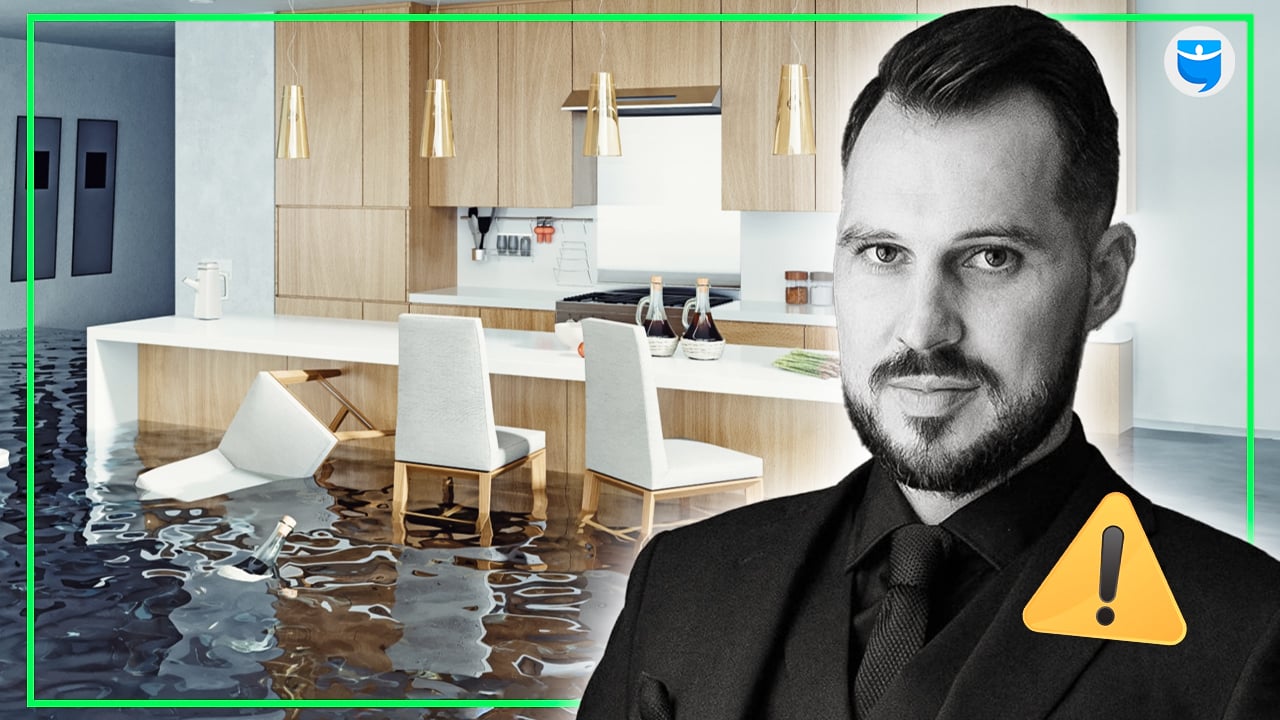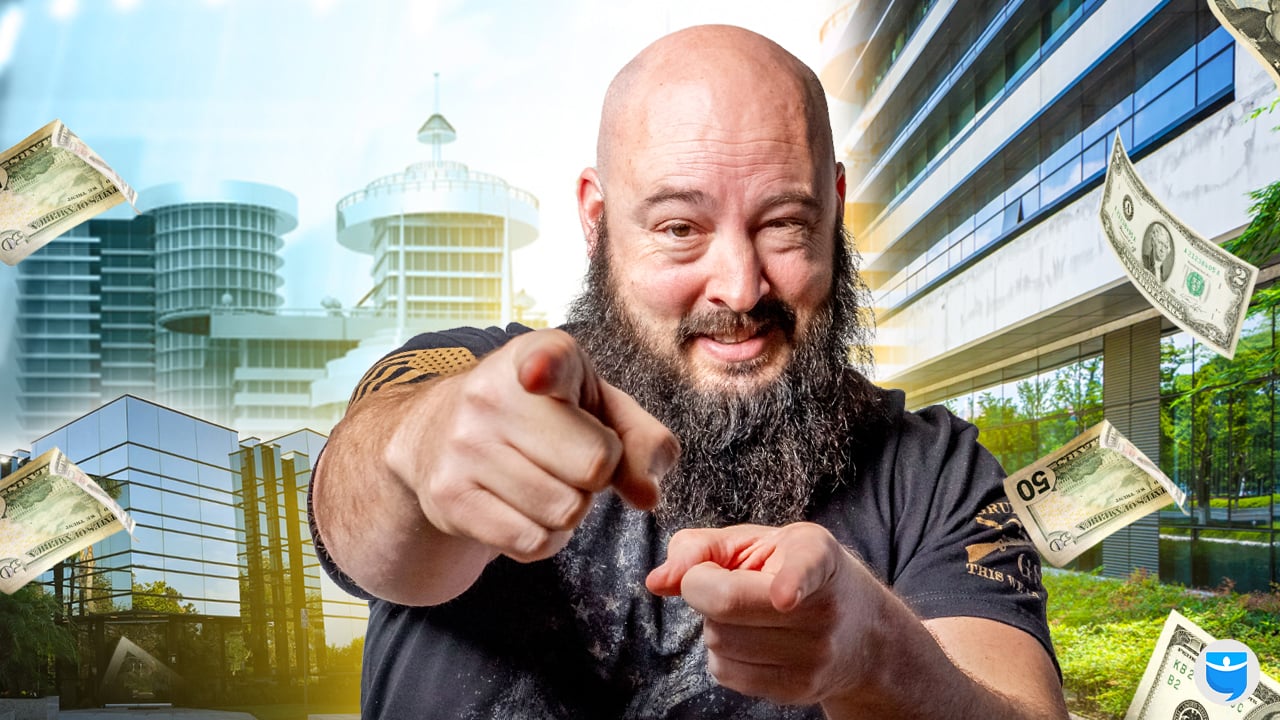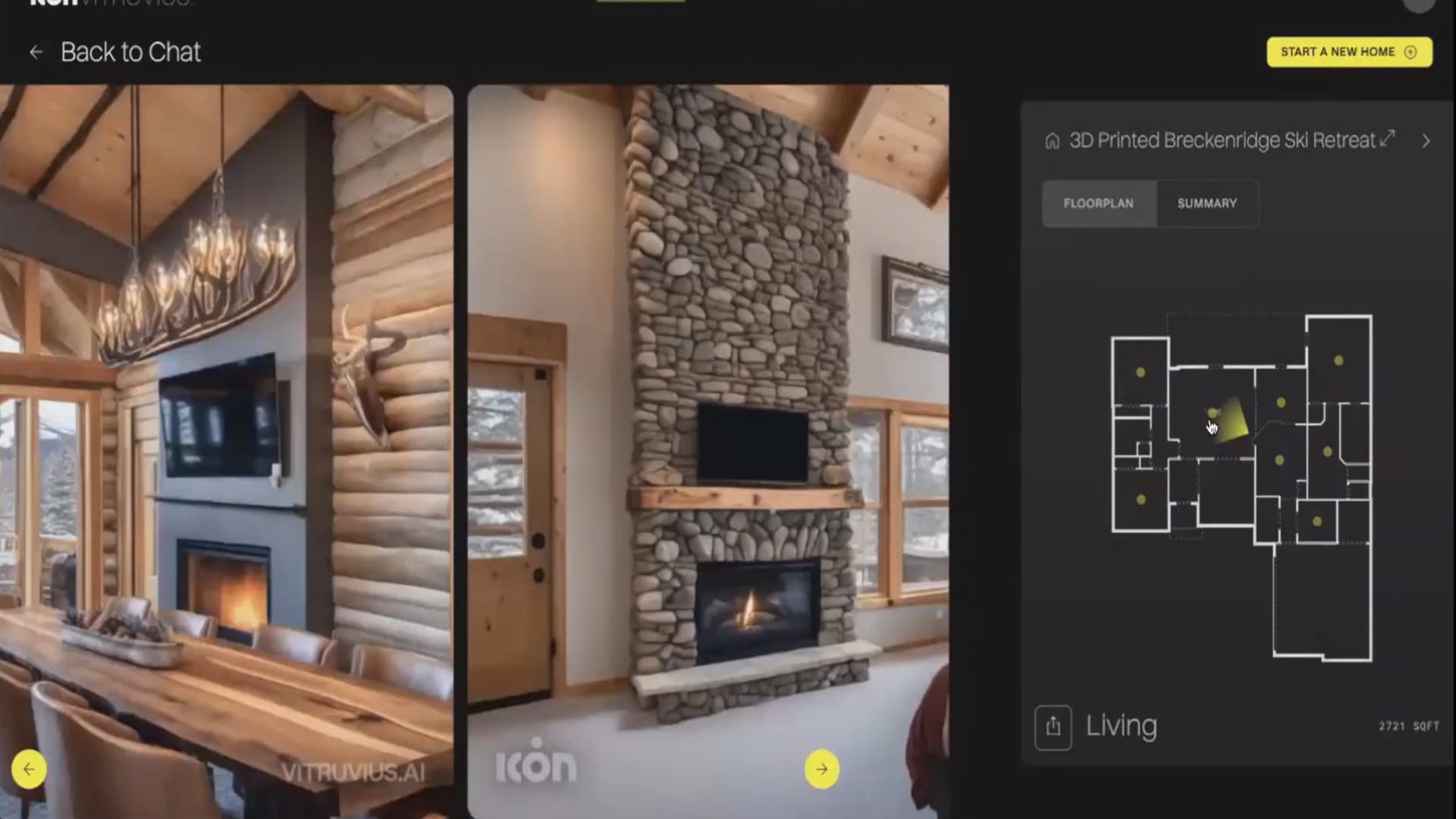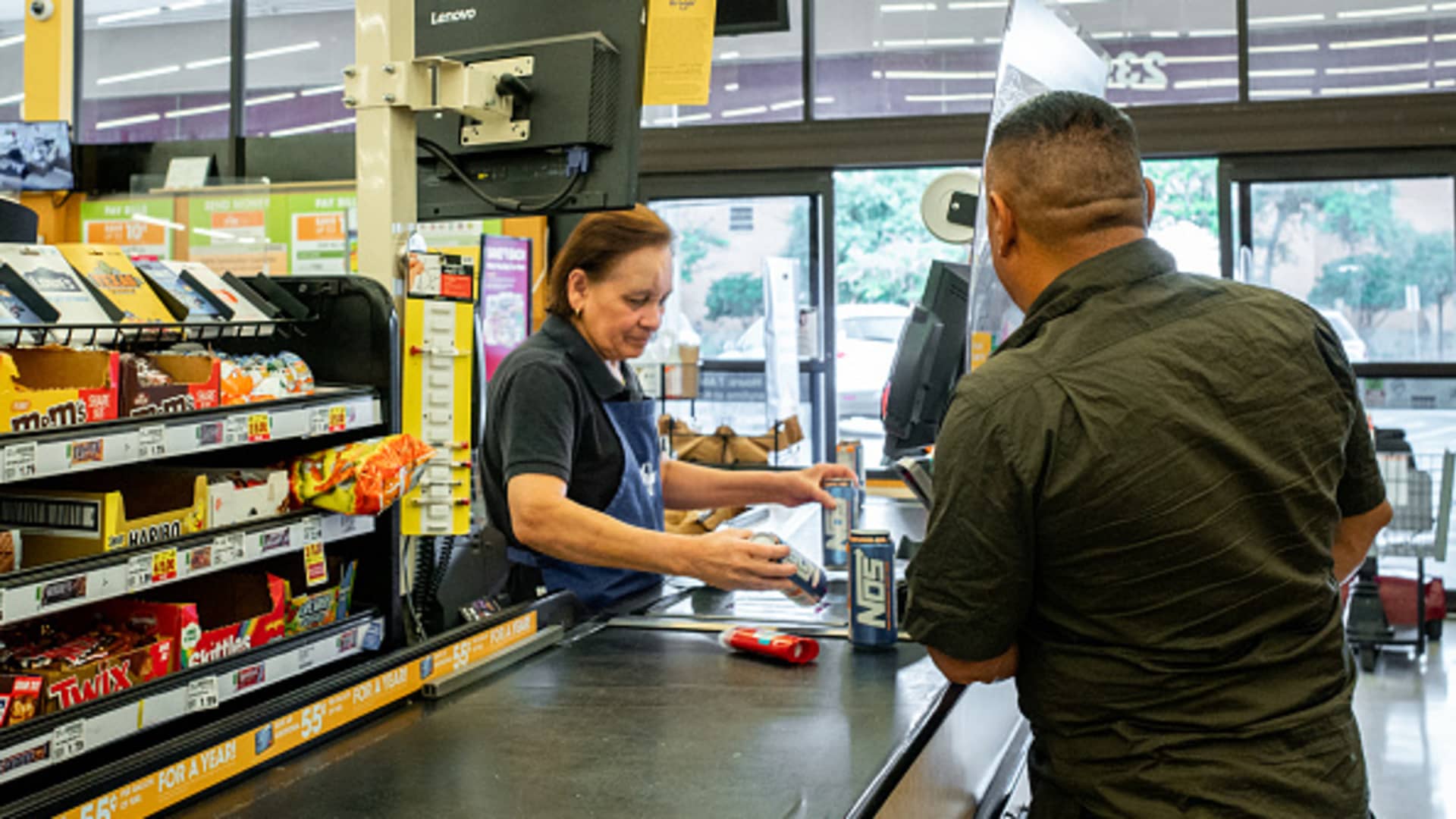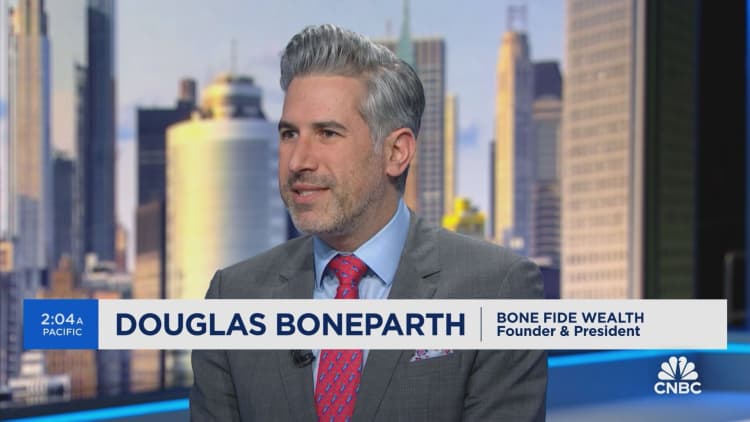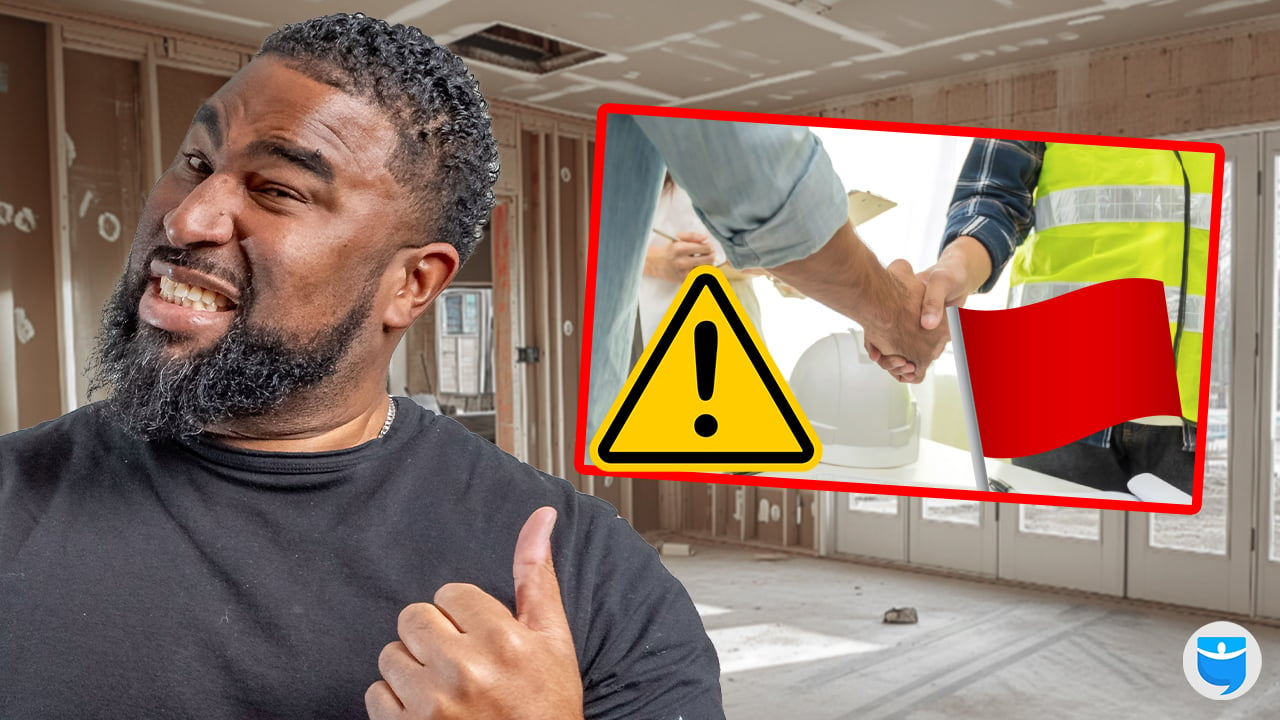Henry Washington:
What’s going on everybody? Welcome to the BiggerPockets Real Estate Podcast. I am your host, Henry Washington, and I am joined today by my good friend, Mr. James Danner, for a show about one of the most relatable universal problems that investors face and that is contractors. James, have you ever had a nightmare contractor?
James Dainard:
Never once. Every job site has gone a hundred percent smooth.
Henry Washington:
Always bating a thousand,
James Dainard:
Bating a thousand. I feel like me and you were talking about construction a lot the last couple of weeks. Definitely one of my favorite topics because I’m a value added investor, so the construction is so important to implement correctly and have the right people on your team. We’re going to cover a lot of things that will help spare our listeners some pain to where they don’t make same mistakes. They can vet their contractors and avoid costly problems. And
Henry Washington:
To do that, we have brought in Mr. Rico. Leon Rico is a contractor who specializes in cleaning up other contractors’ messes. In fact, he’s so good at it. They gave him a show on HGTV called Rico to the Rescue where he does just that. So today he’s going to talk to us about what red flags to look out for when hiring contractors, how to protect yourself with a strong contractor agreement and what property owners can do, even if a contractor project goes way, way out of bounds.
James Dainard:
And I do want to say that not all contractors are bad. We reference that a lot throughout our show. There’s thousands of great ones out there. We’re here to help you protect yourself and make smart decisions. That’s the whole thing that we get. Talk about Ricoh about making smart decisions and protecting your job site.
Henry Washington:
Alright, that sounds great. So let’s bring in Rico. Rico, Leon, welcome to the show.
Speaker 3:
Thanks for having me.
Henry Washington:
So you’ve seen a ton of contractor work gone wrong. What’s the impact of that for these families? What’s at stake for them?
Speaker 3:
So a lot of people that want to do renovation, they always have a budget. They get started, they hire a contractor and then things move forward. In my show, they tried to do that and then unfortunately that contractor would just take the money and run or cause lots of damage that is very expensive to fix and then the contractor runs away and puts it back onto the homeowners. So this is what I’m seeing now more than ever because, and honestly, the pandemic is what threw wrench into things because not only the material costs go up, but then subcontractors were getting smarter with their bidding, but the GCs weren’t. So all of a sudden a GC will say, Hey, I’m going to do this project for 150,000. I have all these subs. We’re going to move forward. During the pandemic, halfway through a project he found out or she found out that they’re making no money, absolutely none. The subs are costing more and material costs more, and then they’re realizing they’re doing a job for free. And the problem is they don’t have that conversation with the homeowner. They just say, I want more money or I’m going to put a lien on your house. So there are better solutions to solve these problems than just screwing over homeowners. That believed what you said to begin with.
James Dainard:
Yeah, the pandemic, it was like this breaking point in construction because I’ve been in construction for a long time 2005 to now. And in 2008 I remember there was contractors everywhere you could get. It didn’t matter what kind of project you had, you had to line out the door. And then as the market improved, resources start tightening up, right? The economy gets better, there’s more work out there. And then when, like you said, it threw a wrench in it and the wrench cost three times more than the trades. And during the pandemic it was we had this massive crunch of bodies and the demand and the boom and so much money got poured in the economy. It really pulled the resources out and the subcontractor prices exploded. And we’ve seen the same thing across the board with these general contractors. They’re bidding things, they come too high, and then there’s a million reasons of why. And there’s something that breaks down with the communication of they just don’t want to sit down and talk about it where it should be like, Hey, I bid this, I have a problem, we got to review this again. And there’s a lack of business etiquette there, and then that’s where it just spins out of control.
Speaker 3:
Well, it’s funny because over here I think too many people are underbidding it, not overbidding it because if a contractor’s not making money, then the priority of your house is going to be last on this person’s list. And then of course problems arise.
Henry Washington:
Ricoh. In my market, what I tend to see is some of the contractors that I work with, especially the smaller mom and pop contractors, are great contractors in terms of quality of work and maybe not so great in terms of operating a business because they got into the business because they enjoy being a contractor, not necessarily because they like running a business. So you lose some of the customer service aspects or some of the communication aspects, like you said, how contractor really just need to sit down with the homeowner and say, Hey, this is what we bid, this is why we bid it, but this is where we are now. Do you find a lot of that sometimes being the cause of contention that maybe they just aren’t great business operators, but they’re better contractors?
Speaker 3:
That happens a lot. That happens so much. I mean, there’s people that just do flooring that homeowners love so much. They’re like, can you please do the rest of the house? And then that person says, well, I got a friend that does tile and I got a friend that does plumbing and I got a friend that does whatever, and that person will bring those guys in but doesn’t know how to manage or market up or communicate or even manage all of it. So there’s so many situations that I’m seeing right now. I know the mom and pops are really good. They could build you the most gorgeous kitchen, not great with communication, not great with their SOP system, operating procedures, not great with their finances because again, pre pandemic robbing Peter to pay. Paul worked out. It worked out back then because people were paying, you could shift money, get things going, and it was kind of a smoother flow.
Speaker 3:
Pre pandemic. During the pandemic robbing Peter Pay, Paul did not work. Homeowners stopped paying because they didn’t trust contractors. So now you have contractors that owe 2, 3, 4, 5 people like subcontractors and you have GCs that owe money. You have GCs that haven’t finished work and then it’s a standstill and then everyone’s like, where’s my money? And everyone’s cool until money’s involved. So that lack of communication is the reason why things blow up because they don’t have those systems in place. Something that a lot of people don’t know, there’s a new Colorado statute, a construction statute that they just passed in Colorado. So now if a contractor in Colorado spends $1 of a homeowner’s money on another project, that person could ask for discovery, get the accounting and sue right away. So they’re trying to prevent contractors from doing that whole robbing Peter to pay Paul thing. So now if you want to stay in construction, spend the $15,000 on a lawyer to make sure your contracts are in place, your systems are in place, you’re protected legally, have the language in place, and then make sure you have someone that manages finances beautifully to make sure everything is in line with milestones on the contract
James Dainard:
That robbing Peter to pay Paul. That’s a big deal. That’s something that we’re always looking for as renovators and we’re hiring contractors and there’s always this little queue that starts happening that what’s going on. Typically they’re start asking for draws a little bit earlier, earlier and earlier. That’s usually my number one red flag, like going, okay, if you’re requesting money too soon, you need the money and you can kind of see it happen through as you hire these contractors out. And to touch on a couple points that you and Henry discussed is during this boom, the subcontractors saw general contractors getting a lot of work and they thought they were making a ton of money and they just jumped right into the space. They went from electrician to general contractor, and it’s kind of unfortunate because you lost a SubT trade, but then B, they just didn’t know how they were getting into it and they didn’t understand all the cost of running a general contracting license like the licensing fees, the insurance, the payroll tax, and it snowballs on ’em. And the snowball can become detrimental to a renovation project whether you’re doing it for yourself or especially for a flipper, because if that construction project goes awry, your deal is dead.
Henry Washington:
So now that we understand what’s underneath some of these contractor issues and why we’re seeing so many lately, what can homeowners do to prevent these problems in the first place? We’ll get Rico’s answer right after the break. Welcome back investors. We’re here with Ricoh Leon of HGTVs, Ricoh to the rescue and he is rescuing all of us we hope from future contractor nightmares. So let’s jump back in.
James Dainard:
So it’s all about prevention as we’re going through things I’ve learned over the years is the more you vet your contractor, the more organized you are as an investor by putting things on construction contracts, having a template, a written down guide, the investor, the homeowner, and the contractor of how that job site’s going to run and the processes that are going to be implemented and how change orders work. It really ties the whole job site together to where everyone’s on the same page. How do you prevent mistakes on your job sites? Because a lot of times we get so excited, we just want to hire the contractor, get going and people skip all these vital steps.
Rico León:
You don’t get paid if you don’t follow the system. You have to force people. You hear about CRMs, right? CRMs organize what you do, but if there’s not a person that’s organizing and constantly touching the crm, then the CRM means nothing. So your processes and systems also mean nothing. If there’s not a person that enforces, Hey, by the way, before you do this, sign a conditional lie waiver. You don’t get a check until then. Make sure that you’re going to do this. Prove to us that you have funds in the bank so we know that the project’s going to get done. These are things that a lot, I’m a systems guy, I’m an SOP guy. I’ve created language that’s used to help homeowners and contractors against insurance companies. I feel like I was an internal lawyer my entire life, right? Because I know a lot of contractors like to complain versus find the solution.
Rico León:
And the solution is creating a system that protects you and the homeowner just get things done. This is the problem. Another pandemic thing, the jobs now when it took three months before it takes six, if it takes six, it takes a year. Now permitting takes longer. All this kind of stuff takes longer. So you have to strategize paying your rent, your mortgage, your car payment, your kids whatever for three months longer. So you have to factor in inflation pricing and then also a level of priority. If you do this proficiently, then you’re fine. If you don’t, you’re going to end up on my show. You know what I mean? You’re just going to end up screwing a homeowner whether you’re a good guy or bad guy, and then I’m going to have to come in and go track everything that you did or wrong, like insurances and everything else. And it always comes down to the process a hundred percent. Or they sell a job just so they could get a check today and then never necessarily prioritize them at all.
James Dainard:
Yeah, get that funds coming into their account and not saying, one thing I do want to clarify is you guys, there is so many great contractors on this planet that run a professional business. I have contractors I worked with for years. It’s just when it gets out of control, it can become very damaging. And so we have a standardized checklist before we hire a contractor. It’s check references, check their license and bond status every time we hire them because sometimes it lapses in the middle of your job as well. Review the bid, make sure it’s itemized out by line item. Every benchmark needs to have a dollar amount associated with it. Every line item needs to have a dollar associated with it, A construction contract signed to where they know what their payment schedule is, how it works, what they’re responsible for, what we’re responsible for, and just keeping that clarity.
James Dainard:
And the reason we do that not only is to prevent mistakes, but to mistakes early. Because once these jobs snowball and you don’t get on the contractor and it gets out of control, that’s where the fire starts and it is like you can’t control it at that point. Right? What red flags are you looking for from a contractor on a job site? What is that? I know I see a couple cues where I’m like, okay, something’s going on here. What are those red flags that you’re looking for or tell people to watch out for to know your job site and he’s getting a little out of control.
Rico León:
Yeah, unfortunately, everyone tells me what I want to hear. Contractors tell the homeowners what they want to hear also, and I feel like some of them believe it where it’s like, Hey, I’ve been doing this 30 years. My dad’s dad, dad did it, and I have a great reputation. I’m old school. I’m old school. I don’t have the internet, I don’t have websites. I’m just really good. Whatever the thing is, good contractors say the exact same thing as a bad contractor, you have to, when I say references, it’s references in the last year, year and a half. I don’t care if you did Mrs. Jones edition in 2010. I literally don’t give a, because that was a billion years ago. Prices were different. What have you done successfully now in the last year? Because if you could do successful things in the last year, then I know you understand the processes, systems, the pricing, and then I’ll feel a lot better.
Rico León:
So when anyone comes up to me, I look at the most recent projects that they have, and then I definitely do due diligence by calling those homeowners, making sure I was like, Hey, can I stop by? Is that cool? Hey, I want to invade your privacy, but I just want to make sure I’m making a good decision. It’s just that vetting process has to be more, you have to spend more time on that vetting process and definitely follow up with real humans. People could build a gorgeous website now with AI in an hour and a half, and it looks like they’ve done a hundred million dollars worth of work. So you have to do your due diligence a lot more detailed now than before.
James Dainard:
Yeah, part of that due diligence, what we do is we check their license number. When was that established? When was that granted, there’s a date on there. If your general contractor has a year and a half old date, that can be an issue because the next question needs to be like, where were you working prior or did you own another construction business prior? Because in Washington state, it’s a little bit easy to get your contractor’s license. You fill out a form, you send it in, you get a bond, and poof, you are a general contractor, you can go build a house.
Rico León:
Wow,
James Dainard:
It is a joke.
Rico León:
Colorado’s not like that at all.
James Dainard:
I mean, there’s so many things that come awry with that. And so for us, we want to go into l and i website, check their name, see if they’ve had old companies, but it’s such a joke. You have to watch out for it and you have to check those references because one time I hired a fake contractor, he literally had a fake id, fake bank accounts. He had a builder’s license that was real, but it was all fake identity up to it. And I had one reference from someone that referred it over, but if I would’ve gone through and gone back a year or two on his references, I would’ve known it wasn’t a real thing. And so taking that time and checking is so important. And then when you do make your mistake and sometimes you hire the wrong person, I’ve done that countless amount of times having that brick and mortar, so important to keep things going forward. Do you use construction contracts before you hire or when you’re going through the paperwork, the paperwork protects you on your deal? Do you use a construction contract and what do you feel are the most important things there to be included in that agreement?
Rico León:
Yeah, so I have a pretty intense work authorization, very intense, and it definitely protects me from multiple things just because I’ve been screwed over by the homeowners too. It’s not just contractors or all the bad guys or anything like that. There’s homeowners out there kind of doing the same thing. So in my workout, there’s multiple things. I have a pyramid and the pyramid’s a hierarchy. So the hierarchy I send to the homeowner saying, Hey, I’m the owner, but only talk to me when it comes to this is the project manager, this is the plumber, this is the mechanical, mechanical this. These are the people that are in charge of this project. The main point of contact is your gc. If you’re having issues with money that you call grace, you call Jordan, you call whomever. There’s things in my contract that are systematic where it’s like, Hey, you stay in your lane.
Rico León:
I stay in my lane because at the beginning it’s honeymoon period. Homeowners are excited, contractors are pumped, whatever, and then a couple months in, the homeowner can turn and be, I want this, this. And then a contractor can be like, oh, I’m not making money this. So what I do is I have my systems in place where the homeowner knows what to do if this person’s happy, not happy, whatever the homeowner’s responsibilities are on one sheet. So it’s like this is your job to pick this. It’s his job to do this at this timeline. It’s just getting things into systems and then enforcing it. And that’s how I do pretty much any job moving forward. I do my due diligence on the other end where I make sure the homeowner understands how it’s going to go. This is a problem with contractors right now, and the investors do this a lot.
Rico León:
When contractors start working on a job, the homeowner’s like, well, how much are you making off of this? What’s your percentage? What’s your cut? How much are you taking? Half of it, are you doing this? And then when that happens, it’s just a standstill contractor, stop talking. They’re like, I don’t want to work with this person. They want to know the money because the second that homeowner knows how much you’re making, they’re going to start cutting that down. So there has to be ways where it’s just like we’re doing this system. This involves all of our profit in there. If we agree to do something different, we’re going to have an agreed upon change order that we will both read and sign and then we could issue another check for that and then move forward. You got to go slow the first three months to make sure everyone knows what’s up. Then go gungho.
Henry Washington:
Ricoh as a homeowner is writing a contract. What are some of the things they need to do due diligence on?
Rico León:
It’s like you as a contractor have to have, if it’s not like W nine employees, they’ll two employees. Then if it’s a 10 99 world, then you may have to make sure that they are bonded insured, like he was saying earlier, like James was saying earlier. But then on top of that, making sure their insurances are up to date. Because I’ve seen insurances that they say they’re insured and they stopped paying like a year and a half ago. So there are these things that you have to do certain levels of due diligence. Also, as a GC to protect yourself, you have to have a subcontractor agreement with every single sub that you have. Also, because if they mess up their insurances get hit first, their insurance will pay for it. You as the GC don’t lose 10, $20,000. You could get that money back, hire a different contractor for that specific trade and then move forward. But if you don’t know this stuff, when I started, I didn’t know this, right? So when I started and these guys mess up, I wrote a check for my account to just move forward and get it over with. But I know a lot of people can’t do that. So having the subcontractor agreement, understanding the processes and all that kind of stuff, really streamline things and then you start getting the profits that you want.
Henry Washington:
Rico, when I do contracts, the way I typically organize things is we’ll give some sort of an upfront payment, typically no more than 25%, and then we will tier out a schedule in terms of in tier one, these are the things we expect to be completed. And then we’ll do a review and if they meet those things, then we’ll pay them and then they move on to tier two. And then we do that maybe for three or four tiers or depending on how large the project is. Do you recommend everyone have some sort of tiered payment system in their contract?
Rico León:
Absolutely. I love the tier. I love that as well. And then also just put in the contract stating like, Hey, we know things arise and material costs go up. Or maybe you want to hire a subcontractor that’s better, that’s more available and that person’s more expensive. Have that conversation with the homeowner, proof to that homeowner that this is an actual situation. Then you can move forward. I tell people to not get emotionally involved because homeowners and contractors, they just fight internally. So I always say, put it into a bank, have it in escrow. Give the bank all this information of the tier system. That way you could put it on the bank and the bank’s like, Hey, we’re not going to release another 50 K unless we get proof and boom, boom, boom. So now a homeowner can take it off of their chest. They don’t have to be the Karen that’s like always blah, blah, blah, blah, blah, blah, blah. They could be like, Hey, you know what? You want more money, it’s going to cost more. So why don’t we do this? Show me the proof of why and who you’re going to do this, who you’re going to hire. Just do the simple thing for me. I’ll give it to the bank. Someone can do an inspection and then they can release the money. So now when you put things into an escrow into a bank, now your hands are free and the bank’s got to go off of the written contract.
Henry Washington:
Man, first of all, that was worth the value of the episode alone. That’s a great tip to put it in escrow and blame the bank. Last night I was doing a class with James and he was given some contractor tips and he said, and he told me something similar that I should just blame him for every time something goes wrong. Oh, that’s funny. But yeah, no, that’s a great idea to put it in escrow with the bank and then that bank can help you release those funds and obviously they’re going to protect that the best way that they know how.
Rico León:
First of all, they want the money in the bank. They make money off the interest of holding onto the money. Cool, whatever. We’re not going to talk about how banks make money, but they’re going to do 10 times more due diligence. Let’s just say maybe intentionally a little bit slower, maybe intentionally a little bit slower, but guess what? They’re going to do more due diligence. Then the contractor could be mad with the bank versus you the homeowner, and it makes things go a little bit slower, but you’re safer. You don’t get screwed.
Henry Washington:
Man, there is so much gold here already. But what I want to get into is how to write smart project milestones and if things do go wrong, what options do property owners have? Rico has some genius tips for that after One more quick break.
James Dainard:
Hey everyone. Welcome back to our conversation with contractor Rico. Leon, let’s pick up where we left off.
Henry Washington:
One thing that I have done before to RICO is working with contractors that allow me to pay with a credit card because in some of these situations, what I found is if they go off and they say they want more money or they say that they did something that they didn’t do, I can then file a dispute with a credit card company. Oh, interesting. And get my money back. Have you seen contractors that a won’t work with people with credit cards, or are you open to working with people who are going to pay with the credit cards?
Rico León:
You know what, that’s literally never come across. I’ve never really had a situation with the whole credit card thing. I think if that’s true, then that’s amazing. I think homeowners should do that to protect themselves, but I’ve never gone through a situation where they’ve done that. I think one time a homeowner bought the materials, so then they didn’t have to pay the cost plus and they bought the materials with their credit card, the materials were on site, and then I think half the materials disappeared and it was like this weird shady thing that happened, and I’m not necessarily sure that they filed a claim saying that the person stole it. I don’t know what the process is after, right? It’s like does a credit card file an insurance claim against the contractor’s insured or do they just do a little investigation and then pay out? So I’ve never been in that scenario because I could also see how people would abuse that scenario also. So for me, it’s never been a situation I’ve ever been in.
James Dainard:
Yeah. One thing you have to watch out for on that credit card is you got to look at, like Rico said earlier in the show, is you have to check your local laws. Every state has different lien rights. They have different contractor laws. I know like in Oregon, from what I understand, a subcontractor can actually get in front of the bank by filing paperwork. They have all the rights in that state from what I’ve heard. And so you just want to make sure that it’s also not fail safe because if you dispute it and let’s say the credit card turns it over, they can still lien your property. And that’s what the construction contracts are there to do, is to kind of guide when they can lien for what services, and then also in these benchmark schedules, clarify when they’re going to get paid because nothing’s worse than a homeowner, than the contractor going, Hey, I need a check.
James Dainard:
I need a check, I need a check. And you’re going, okay, do I just give ’em the money? And those benchmarks are very important to have in there when I’m given a draw out, typically, we actually like to do 10% down just through demo, then give ’em another 15% to get going because the most dangerous part of your renovation is that first 10% because you are diminishing the value of that property the day you get in and you rip all those cabinets out, you rip all that flooring out, your house is not financeable anymore, and that’s where the value is going to come down. So when you’re doing these contracts, how much clarity do you have in your draw schedule? We have benchmarks going, Hey, you get through demo. Then we go through our construction bid, tie it in with the contract, and we highlight sections like this must be completed before the next payment.
James Dainard:
And we usually break it up in four to five payments across the board and we have ’em sign it because when they start asking us for money, we can meet with them in person, go, Hey, look, we all agreed to this schedule. I want to pay you, but you just got to get this done and I will give you a check tomorrow. Or that’s usually that red flag in that sign where I’m going. You’re asking a little bit earlier, and that’s where as an investor, a homeowner, I can kind of step in and go, okay, is there an issue here? What can we do to resolve this? Do you want me to go buy the materials for you and then you can install it and then I’ll get you a check. There’s so many solutions because what happens is they get in this conflict, they go to the contract and people start fighting, whereas they need to get together and have go, how do we fix this situation? What are common things that you’ve done to mediate those? It’s so important to get everyone on the same page.
Rico León:
So this is the thing, even marriages, right? We are all in love. We start this some years in, maybe it’s a little rocky. It’s the same with almost everyone, right? They have a perception of what it was going to be like. It’s not exactly to what they wanted. Now everyone’s not feeling good. So in the middle of projects, let’s just say a homeowner’s getting iffy, but I know as a fact I need a certain amount of money to get to the next milestone. Even if I prove it, what I do say, Hey, I’m willing to sign a conditional lien waiver, not just myself, but my subcontractors as well. So this is showing good faith on my end that I can never lien your house. I can’t lien it because when you send a conditional lien waiver, it says you’re going to hand me a check for 20 5K, and I’m going to hand you a thing that says, I will not put a lien on your house.
Rico León:
I’m never going to put a lien on your house under the condition that I take this money and work on your project. So if there’s ever a weird people don’t have a problem with me, but let’s just say a contractor that they may not know, I always say in the middle of a project, Hey, you know what? I’m going to show good faith on my end. I’m not that type of guy that’s going to be like lean, lean, lean, money, money, money, but my subs need this, this, this to do whatever. I proved it. Let’s do a conditional lien waiver. That means they won’t, won’t put liens, and I won’t put liens either. Okay, we meet in the middle, yes or no. So then in middle of projects, when things go a little array, which happens naturally, sometimes it doesn’t. Those are those things that I do to put the homeowner at peace so that we can move forward. Because my thing is this, we could argue about this for two, three months, and then those two, three months, I’m paying rent, mortgage, my car, whatever, and I’m losing money. So I try to solve things as quickly as possible and then put ’em at ease.
Henry Washington:
Even in the most perfect world, Rico, when you have a contract, everything’s lined out, you’re all in the grants and you’re ready to rock and roll, there’s still going to be those moments where there’s miscommunications. Can you give us maybe two to three of the most common miscommunications or misunderstandings between contractors and homeowners and then how we can potentially help people avoid those situations,
Rico León:
Have the conversation before signing the dotted line, say, Hey, by the way, I’m a contractor. I’m in charge of this and I control this. There’s five things over here that I do not control how fast permits get done, the speed of materials getting to the house, the inflation rate of this. So I have a list of things that I do not control, and what I do is I show them that list and say, Hey, there’s a scenario that it might be asbestos and not just drywall and installation. In that case, when we start doing demo or we test it and we find out there’s asbestos, that demo is going to be abatement. It’s going to be three times more. These are situations that may happen before we swing a hammer. So these are scenarios that I’ve gone through he and back 20 times that I list upfront, and then I let them sign a paper saying that I had the conversation with them.
Rico León:
So then when they say, well, you didn’t tell me that this was going to happen, I was like, actually, yes. Now if it’s the things I can’t control, then I’m free and clear and we’ll figure out things together. If it’s the things that I can’t control. I tell homeowners all the time, throw a scenario my way to see how I handle it. So throw me a scenario where my plumber steals $10,000, and then I’ll answer those things. So I tell homeowners, throw it at me, throw me the good, bad, ugly. And these are conversations that have to happen at the beginning, but then just let the homeowner know when this horrible thing happens, I’m going to stay here. We’re going to solve it together. Let’s both be logical and then move forward.
James Dainard:
Yeah. It’s all in the communication. And once that breaks down, the job site gets out of control, trust is gone. You get this pull, right? And that’s where you want to meet people on site, walk it together, find out a common solution, because what you just said can really happen for investors, homeowners, the contractor starts leaning the property and sometimes they’re leaning it because they’re supposed to be paid and they should be leaning the property the other times. Sometimes they’re trying to bully the person into getting the payment, right? They’re clouding the title. So you can’t sell it, you can’t refinance it. I know there’s some things you can do as an investor or homeowner that we’ve had to do in the past too, where we have a dispute, we have a construction contract, we have a quality issue. We had to bring in other people to come fix the work, and we’re not making that final payment.
James Dainard:
And a lien goes on and we’re trying to sell that property or refinance that property. I know for a homeowner, there’s things that you can do. You can work with your title company, you can get a bond for that lien. Typically you have to deposit one and a half times the lien amount and title will actually bond around that lien, and then it has to go through mediation. And then at that point, they’ll actually release it. And so you can kind of keep moving with your day because I have had times where you’re in 12% interest, the contractor’s leaning your property. You don’t get stuck in that debt for sure. And that doesn’t mean you’re going to get the money, but it does mean that you can keep going on just like that contractor because at the end you still got to get to that resolution. What other things do you suggest homeowners and investors should look for? And again, there’s so many great contractors out there, it’s that 10% that cause some issues and you can get bullied. Your job site can get messed up. What other recourses do homeowners have against a contractor?
Rico León:
So I think, again, it’s by state and the whole conditional lead waiver thing is going to protect you a lot. And unfortunately, a lot of contractors are really good at telling you what you want to hear and just to get that job going, just to get the check. And then they go, we were to figure it out later. And what’s hard is honestly, you got to go old school. You got to talk to people that have had phenomenal situations with a contractor from beginning to end, and again, in the last year, two years. So I was just saying earlier, I was like, Hey, I know the guy that stole, he stole 600 K total, but he stole specifically from my jobs like two, 300,000, my gc, he stole that money from me. So whenever that happens, I’m like, all right, cool. How do you prevent all these things from happening?
Rico León:
There was a honeymoon period and that was pre pandemic. He was awesome 5, 6, 7, 8 years ago, and now he’s obviously the opposite. So I think what you need to do is obviously talk to inspectors, realtors, people that do all those people that have just recently done a project, that word of mouth is be more powerful than a hundred reviews, which you could pay for now, right? A sick website that you could pay for a hundred dollars AI could build you a sick website. I think you’ve got to go a little bit old school to see that type of reputation that the contractor has. And it’s a risk, right? It’s always going to be a risk, even if you have all your systems in place, contracts in place, you never know because human nature, you know what I mean? What happens if two the subcontractors die and then the sons take over as a priority on their business and all of a sudden sue you for whatever, not going to, it’s like all this kind of crazy could happen. So it’s the thing what James and I have said to prevent it. Those are it. There’s nothing else except for the certain laws in your state that could protect you anymore. Like the Colorado construction statute that just appeared here. That’s brand new to help the homeowners from going through and prevent contractors from playing games.
James Dainard:
Well, Rico, this has been amazing. To kind of wrap up, what are your top three tips that a homeowner investors should do before hiring that contractor to make sure that they can kind of protect their job site? We want to hear Rico’s top three.
Rico León:
Number one would definitely be the references, but the references have to be recent. So what have you done for me lately? That’s number one. Because again, like I was saying earlier, someone that was awesome 10 years ago means nothing today. It means absolutely nothing today. So references that are recent and then proof. So you got to say, Hey, what’s the address? Can I see before and afters? You got to dig deeper. You got to assume everyone’s a liar and dig deeper. Number two, I would definitely say ask a contractor the good, bad, ugly. Ask the contractor what’s going to happen if the worst things happen and how that person’s going to delegate it. Just be like, Hey, I know things happen. Tell me how you would solve it. And then number three, get another third party contractor, just the GC to look over everything. I know a big mistake people make is they get architect first and they say, Hey, I want to build a house, an addition for 300 K. The architect builds it. It must be for Mark Anthony in Miami because when a GC looks at it, he’s like, this is six 20,000.
Rico León:
So it’s like that happens all the time. It happens all the time. So if you’re going to mess with an architect, have a GC look at things first, and then also talk with the architect, because this is a big issue out here. People go architect first. I get it. I get it. Then they show to four GCs and all four GCs say it’s 500 K, and the architect was told 300 budget. So make sure you involve a GC that’s third party that you say, Hey, this job isn’t for you. I’m going to give you a couple hundred dollars to just consult me. Look over this stuff and show me the red flags, the best couple hundred dollars you’ll ever spend. Because now what do you think That lady that just spent $12,000 for the architect has to redo everything now because she didn’t involve someone that knew. So my third tip would definitely be get a third party contractor or estimator, someone that knows how to put these things together and pay them for their time.
Henry Washington:
Man, these are fantastic tips. I couldn’t agree more. I’ve had architects give me amazing drawings, and I already knew off Jump Street. I’m like, this is 10 times the budget that I gave you. Yeah.
Rico León:
Oh, we’re building Mark Wahlberg’s house, I guess.
Henry Washington:
Cool. Yeah. So if I could sum everything up here, what it sounds like to me is you guys, we have to be human beings. We have to understand that contractors are in this business to make money, so let’s not be surprised that they want to make money or else they wouldn’t be here. But we have to have communication from all parties throughout all aspects of your project because without the communication, you’re going to lose the trust. And if you lose the trust, then now we’re talking about liens and lawyers and things that can get really expensive and cause families to lose sleep. So everybody must protect themselves. We’ve got to get contracts in place. We have to have honest conversations about what can get done. And I loved your tip about saying ask people what happens if in a scenario where something goes wrong, because you’re absolutely right.
Henry Washington:
What I would be looking for in that same conversation is somebody who’s giving me an honest answer to say, Hey, yeah, we’ve screwed up before. Here’s how we handled that situation. And I’m always going to pick the contractor who seems like they’re being honest with me. I don’t want to pick the guy that’s like, look, no, we don’t screw up like that. We don’t make those kinds of mistakes. Everybody makes mistakes. It’s about how do we pick ourselves up and handle the mistakes going forward? How do we communicate with each other? A lot like a marriage man. You just have to have that communication upfront. Rico, thank you so much for coming on the show and sharing your wisdom with people. This is very helpful information that people can actually take away and hopefully save themselves a lot of trouble. We also want to say thank you for the work that you do for getting out there and helping families. I don’t think people realize how stressful it can be on a relationship when you are trying to renovate your home and someone is taking advantage of you. And so you’re really, really doing things that are helping people. And these tips are also going to help people make sure that they don’t end up in that same situation. I do
Rico León:
Have one more tip. I do have one more tip that’s so good and I forgot to tell, but it’s so good. The homeowner that I was saving season two, episode one, she put herself as named on the contractor’s insurance. So when he messed up and did all this damage, the insurance companies were ready to ignore everything until we found that out. And since she’s named on the insured, she’s technically a client and because of that, she got $45,000 back. That was something I learned this last year. So that’s another tip
Henry Washington:
For sure. Additional insured. Yep. Before we get out of here, Rico, please let everybody know what night or day they can see your TV show on H GT
Rico León:
V. Awesome. So yeah, my show Rico to the rescues on Wednesday nights. It’s like nine Eastern, eighth Central, something like that. I’m in Mountain Time, so it’s like never lined up. But yeah, every Wednesday. And then I just finished doing Battle on the Mountain, just finished last week, which I was on as well. And then next month I’m on the celebrity season of House Hunters, and then I got more shows that I can’t even announce yet. So anyone that supports, I do appreciate it.
Henry Washington:
Thank you so much, Rico. This was extremely helpful.
Rico León:
Thank you guys.
Henry Washington:
Hopefully we’ll get to talk to you again soon.
Rico León:
Yeah, that’d be awesome.
Help us reach new listeners on iTunes by leaving us a rating and review! It takes just 30 seconds and instructions can be found here. Thanks! We really appreciate it!




